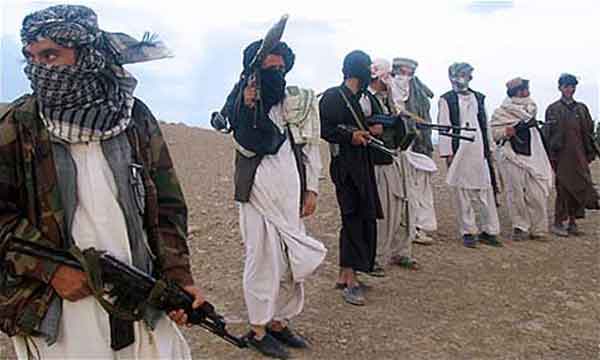Over the past one year, now and then, ‘news’ about al-Qaeda, a global militant group, planning to spread its branches in the Indian subcontinent has circulated. Lately, the Indian wing of al-Qaeda has reportedly assumed responsibility for the murder of three bloggers this year in Bangladesh. This naturally raises questions on the threat posed by this militant group. In this piece, the issue has been analysed from several angles. These include an attempt to understand whether all claims made by al-Qaeda can be accepted as authentic. Considering that al-Qaeda is understood to be losing its strength and supporters because of the rise of the militant group Islamic State of Iraq and Syria (ISIS), prospects of its future in India and Bangladesh have been probed into. Besides, if al-Qaeda can no more be viewed as a strong militant group, there may be several reasons for it making claims about its network and its activities in the subcontinent. It may have indulged in this exercise primarily to gain some publicity through media coverage.
Irrespective of the nature of threat received by Taslima Nasreen, the latest round of news regarding her having ‘fled’ India has certainly invited attention to prospects of al-Qaeda spreading its reach here.
The Bangladeshi writer and human rights activist Taslima Nasreen recently left India, claiming that she was receiving threats from al-Qaeda. Just as al-Qaeda’s claims for being responsible for the murders of bloggers in Bangladesh cannot be accepted as authentic unless they are backed by substantial evidence, the same can be said about Nasreen’s claims. Till the date of writing this piece, details about the nature of threats she had received from al-Qaeda were not revealed. Also, in this case, no representative of al-Qaeda has come forward to accept that threats have been issued to Nasreen from this militant group.
Against this backdrop, in this piece, claims made by al- Qaeda have been analysed to understand whether they are backed by any credibile legimitacy or not. Whatever be the nature of al-Qaeda’s intentions, the militants cannot add any authenticity to the same simply through videos and other means of making claims.
Al-Qaeda was founded between August 1988 and late 1989 by Osama bin Laden, Abdullah Azzam and several other militants. Its origins are linked with Soviet intervetion in Afghanistan. Al-Qaeda has been designated as a terrorist organisation by the United Nations Security Council (UNSC), the North Atlantic Treaty Organization (NATO), the European Union, the United States, Russia, India and several other countries.
Ironically, despite al-Qaeda being in news lately for its alleged activities in the subcontinent, it is important to briefly analyse the same from several angles. However strongly and frequently al-Qaeda may claim itself to be responsible for militant activities in the subcontinent, there is no guarantee about its speaking the truth.
Nasreen’s case of having fled from India owing to reported threats from al-Qaeda has been cited as an example of the degree to which news can be manipulated and manufactured to push forward a certain point.
Taslima nasreen’s ‘claim’
‘News’ about award-winning Bangladeshi writer and human rights activist Taslima Nasreen having fled from India to the United States, following ‘threats’ she allegedly received from the terrorist group al-Qaeda, needs to be analysed from several angles. While there is no doubt about Nasreen being no longer in India, it is as yet too early to assert whether she really received any threats from al-Qaeda. The details of the threats, their nature, timing and frequency, were not made public at the time this piece was being written. Besides, no representative of al-Qaeda has come forward to claim that this terrorist organisation had issued threats to Nasreen. Regarding the threats, ‘news’ about them have been circulated from two sources, one is Nasreen herself and the other is the NGO Centre for Inquiry (CFI), an organisation of which she is a part. Nasreen has been helped to move to the US by CFI, where a fund has been established to assist her.
On her decision to leave India, Nasreen tweeted, ‘Was threatened by Islamists who killed atheist bloggers in B’desh. Worried. . . . Wanted to meet GOI (government of India) but no appointment. Left. Will be back when feel safe.’1 Describing Nasreen as a role model, Ronald A. Lindsay, chief of CFI, said in a press statement in New York, ‘We could not stand by while her life was in danger, nor will we turn our backs on the other brave freethinkers in fear for their lives. I know our community will make a strong show of solidarity and give generously to this emergency fund.’2
Nasreen was forced to leave Bangladesh in 1994, after she received threats from several extremist Muslim groups who described her writings as blasphemous. She lived for a decade in the United States and Europe before India granted her temporary residential permit in 2004. At present, she has been granted ‘temporary’ stay in the US in order ‘to alleviate the immediate threat to her life’, according to CFI. ‘Her safety is only temporary if she cannot remain in the US, which is why CFI has established an emergency fund to help with food, housing and the means for her to be safely settled,’ CFI said in a statement.3
The bloggers killed this year in Bangladesh were targeted on busy streets. AQIS has claimed in its video released this May, ‘The killing mission started in Pakistan with the murder of the secular Dr Shakeel Auj and blogger Aneeqa Naz.’
Irrespective of the nature of threat received by Nasreen, the latest round of news regarding her having ‘fled’ India has certainly invited attention to prospects of al-Qaeda spreading its reach here. It may be noted that earlier too, in India, she faced threats regarding her writings. Initially, she lived in Kolkata but was forced to leave the country in 2008 owing to opposition against her writings. When she returned to India, West Bengal denied her entry and she was forced to stay in New Delhi till recently. It is important to note that the Indian government had cancelled her resident permit in July 2014. She tweeted on 26 July 2014, ‘I applied for extension of my Indian resident permit a month ago. No answer from govt. Never happened before.’ A few days later, she tweeted on 31 July, ‘Indian govt has cancelled my resident permit that I started getting since 2004. Issued a temp tourist visa for 2 months. Beyond my imagination.’4 Nasreen’s visa row was resolved last year when the Indian government gave her a visa, allowing her to stay in India till August 2015.5
Against the backdrop of these facts, it is yet not clear whether Nasreen has moved to the United States because of the present Indian government having earlier rejected her demand for renewal of her resident permit visa or because of threats she claims to have received from al- Qaeda.
Nasreen’s case of having fled from India owing to reported threats from al-Qaeda has been cited as an example of the degree to which news can be manipulated and manufactured to push forward a certain point. Lately, she has justified her decision to leave India because of alleged threats from al-Qaeda. And last year, the same lady was worried about India having cancelled her resident permit. Certainly, she has earlier been threatened by radical extremists in India. But in none of those cases did she take the decision of leaving the country. She preferred moving to New Delhi from Kolkata rather than going to another country.
Al-Qaeda’s Claims and Bangladesh
Nasreen’s case may not have been elaborated upon if claims had not been made in recent past about the threat posed by al-Qaeda in the Indian subcontinent. In a video titled ‘From France to Bangladesh: The Dust Will Never Settle Down,’ chief of al-Qaeda in the subcontinent (AQIS) Asim Umar stated, there is a war going on against Muslims ‘through World Bank and IMF policies, drone attacks, Charlie Hebdo’s writings, UN charter, official sermons by muftis and Narendra Modi’s utterances.’6
Bangladesh, it may be noted, has been taking fairly strictly action against organisations and people indulging in extremist behaviour.
AQIS also claimed responsibility for the deaths of three bloggers this year in Bangladesh. These include Avijit Roy, a Bangladesh-born American writer. He was hacked to death by two machete-wielding assailants in Dhaka on 26 February. Roy, a professed atheist, wrote actively on his blog, Mukta Mona (Free Mind). Washiqur Rahman was hacked to death in Dhaka a month later, in March. Another blogger, Ananta Bijoy Das, was stabbed to death in May in the northern city of Sylhet. Earlier, over a two-year period, several bloggers had died under mysterious circumstances or may have been reportedly murdered. A group called Defenders of Islam in Bangladesh had published a ‘hit list’ of writers who were, according to this group, opposing Islam. By May 2015, nine of those on the list had been killed and many attacked.7
The bloggers killed this year in Bangladesh were targeted on busy streets. AQIS has claimed in its video released this May, ‘The killing mission started in Pakistan with the murder of the secular Dr Shakeel Auj and blogger Aneeqa Naz.’ Shakeel Auj, a respected scholar of Islamic studies, known for his moderate views, was shot dead in Karachi, Pakistan, in September 2014. Aneeka Naz, an Urdu blogger, was killed in a 2012 car traffic accident, in which her husband was injured. Naz is not known to have held contentious political views.
Describing the murder of bloggers in Bangladesh as an activity of local extremist elements, minister of state for home affairs Asaduzzaman Khan said, ‘In our country, there are times when such incidents do take place when the fundamentalists try to create a problem by disturbing the peaceful atmosphere but we are on a high alert so that they don’t get successful in their plans.’





